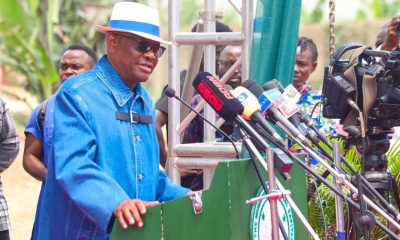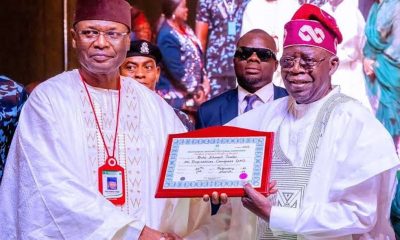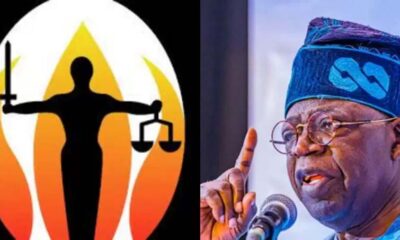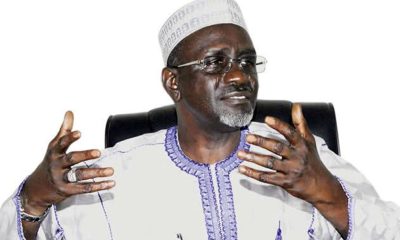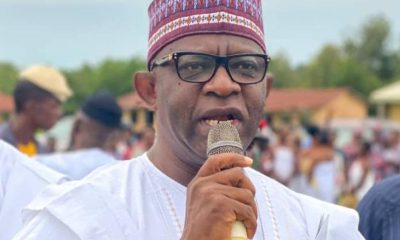News
NLC demands immediate reversal of fuel subsidy removal
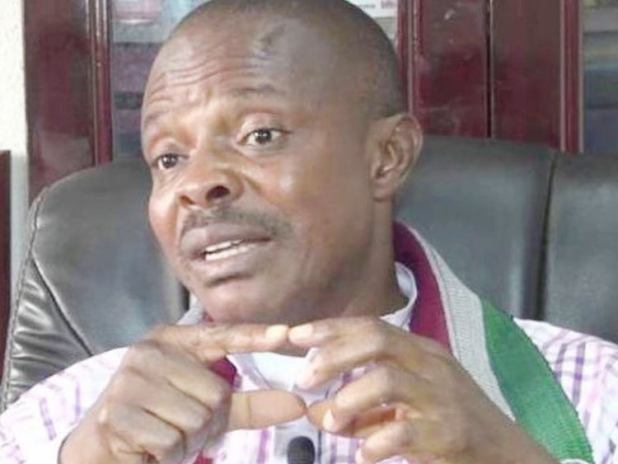
NLC demands immediate reversal of fuel subsidy removal
A showdown between the organised labour and the Federal Government appears imminent over the issue of fuel subsidy removal as the Nigeria Labour Congress has warned the Bola Tinubu administration not to go ahead with the decision.
The NLC expressed displeasure over the pronouncement by President Tinubu in his inaugural speech on Monday that the subsidy is gone.
It said it was wrong to take the decision without consulting relevant stakeholders and putting in place adequate measures to cushion its effects on workers.
The NLC in a statement by its President, Joe Ajaero, on Tuesday noted with regret that a few hours after the pronouncement, some marketers had shut down their filling stations and immediately there was a price hike in many places.
It described the action as insensitive, noting that it had brought tears and sorrow to millions of Nigerians instead of the renewed hope the administration promised.
The NLC also said that President Tinubu’s pronouncement had devalued the quality of the lives of Nigerians by over 300 per cent.
The statement read in part, “We at the Nigeria Labour Congress are outraged by the pronouncement of President Bola Tinubu removing ‘fuel subsidy without due consultations with critical stakeholders or without putting in place palliative measures to cushion the harsh effects of the ‘subsidy removal’.
“Within hours of his pronouncement, the nation went into a tailspin due to a combination of service shutdowns and product price hikes, in some places representing over 300 per cent price adjustment.
“By his insensitive decision, President Tinubu on his inauguration day brought tears and sorrow to millions of Nigerians instead of hope. He equally devalued the quality of their lives by over 300 per cent and counting.
“It is no heroism to commit against the people this level of cruelty at any time, let alone on an inauguration day. If he is expecting a medal for taking this decision, he would certainly be disappointed to receive curses, for the people of Nigeria consider this decision not only a slight but a big betrayal.
“On our part, we are staunchly opposed to this decision and are demanding an immediate withdrawal of this policy.”
The also noted that the pronouncement would have ripple effects on the economic well-being of the people with serious implications on security.
“We wonder if President Tinubu gave a thought to why his predecessors in office refused to implement this highly injurious policy decision,” it stated.
NLC punctures FG arguments
It said, “Nigerians have a collective stake in the ownership of our oil resource held in trust by the government of the day. What we need then is the effective management of this scarce resource that will beget long-term prosperity to the suffering people of Nigeria and not the present racket in which those in power abuse access and control of NNPC and oil revenue to warehouse money to fund their election campaigns.
“This brings us to another inconsistency. On one hand, the government states the expenditure is unsustainable yet on the other it claims the amount now earmarked for the subsidy will be used to fund other people-oriented programmes. However, the two assertions cannot exist at the same time. If the subsidy is bankrupting us, then reallocating funds to different programmes will be no less harmful. A bankrupting expenditure retains this quality whether used for a subsidy or another purpose. Earmarking the funds to something else will not change the fiscal impact. If the government is sincere about using the funds for other programmes, then it must be insincere about the threatened insolvency.
“The concern about the government saving naira is purely superfluous. Officials cry that Nigeria will become like Greece. Those who say this disqualify themselves from high office by their own words. Greece sits in a terrible situation because it forfeited its own currency. Thus, it cannot print itself out of insolvency and it must save or earn euro to pay its bills. Because Nigeria issues its own currency, it does not face the same constraint…
“Again, we must rid ourselves of the old notion that government saving and budgetary surpluses are inherently good and that deficits are always bad. For government to save naira, that means it brings in more than it pays out. Where does this influx come from? It comes from you and me, the private sector. If the Federal Government saves more, it means the private sector will have less. Government surplus means private sector contraction. This shows that the administration has its priorities confused. It acts as if the people are there to help government run itself.
“The more beneficial relationship is that government should be giving people the help needed to better live their lives. The government’s position is akin to a wealthy parent demanding his young children bring home more food for him to consume than the parent gives them to eat. We would deride any parent for such meanness. Yet, this government believes this conduct is wise and prudent.
“Another argument government has presented is that removal of the subsidy will stabilize the exchange rate. This makes no sense. True, since marketers convert much of the naira from selling petrol gained into dollars, there is downward pressure on the exchange rate and foreign reserves. However, this pressure is not a byproduct of the subsidy.
“It is a byproduct of importation. With the subsidy lifted, the marketers will earn the same or more from the sale of petrol. For there to be less pressure on the exchange rate would mean the marketers would seek to exchange significantly less of the same amount of naira into dollars simply because the subsidy was removed..
“There is another “philosophical mystery” in the government’s position. They state the subsidy must be removed to end the unjust enrichment of the importing cabal. There is a major problem with this assertion. If this is truly a subsidy, there should be no unjust enrichment.
“A subsidy is created to allow the general public to pay a lesser price while sellers earn the prevailing market price. Subsidy removal should not increase or decrease the amount earned per litre by the suppliers. If the amount earned by the suppliers will diminish materially, what government had been operating was in part a pro-importer price support mechanism on top of the consumer-friendly subsidy. If this is the case, government could have abolished the unneeded price support while retaining the consumer subsidy.”
News
World Bank approves Tinubu’s $632m loan request

World Bank approves Tinubu’s $632m loan request
The World Bank is poised to approve $632 million in new loans to Nigeria today (Monday), amid growing concerns over the country’s expanding debt profile.
The loans are intended to support important sectors such as nutrition enhancement and quality basic education.
According to data obtained from the World Bank’s website on Sunday, the two loans scheduled to be approved today are $80 million for the Accelerating Nutrition Results in Nigeria 2.0 initiative and $552 million for the HOPE for Quality Basic Education for All programme.
Both projects are now in the negotiating phase and are likely to gain final clearance later today.
These new loans are part of the World Bank’s overall strategy to support Nigeria’s development agenda, which focuses on healthcare, education, and community resilience.
The loans will support the government’s efforts to improve nutrition and education for Nigerian children.
Additionally, the World Bank approved a $500 million loan for Nigeria’s Community Action for Resilience and Economic Stimulus Programme on March 28, 2025, a significant step towards addressing the country’s economic challenges through expanded access.
The initiative, formally known as the NIGERIA: Community Action (for) Resilience and Economic Stimulus Programme, is intended to give critical support to households impacted by economic downturns while also strengthening community resilience.
The initiative focuses on vulnerable populations, providing assistance to households and small companies to help them cope with economic difficulties.
READ ALSO:
- Okada rider allegedly stabbed to death by wife over money
- Police rescue two persons abducted in Lagos
- Miyetti Allah accuses Benue community of poisoning 20 cows
The loan clearance is likely to considerably boost Nigeria’s efforts to revive the economy through grassroots backing, especially given current issues such as inflation and high living costs.
The stimulus plan will prioritise enhancing food security and developing economic possibilities for the populations most affected by recent economic changes.
This decision came after a delay in distributing funds for a previous loan aimed at poor and vulnerable Nigerians.
Further investigation by The PUNCH revealed that the World Bank disbursed around $315 million to Nigeria from the $800 million allocated for the National Social Safety-net Program Scale Up.
Nigeria is yet to receive further funding from the World Bank for this loan project, which was approved in December 2021. The delay in grant release is most likely due to fraud detected under the initiative.
In honour of the 2023 International Day for the Eradication of Poverty, President Bola Tinubu unveiled a social safety net programme that will distribute N25,000 to 15 million households over the course of three months.
The Federal Ministry of Humanitarian Affairs and Poverty Alleviation was responsible for managing the $800 million World Bank loan initiative.
However, due to allegations of embezzlement, the federal government was forced to stop the cash transfer program for further investigation and reform.
Betta Edu, a former humanitarian minister, was previously suspended for misappropriating N585 million set aside for palliative care distribution.
READ ALSO:
- Wike’s aide slams Atiku, says it’s too late to buy integrity
- Reps Committee recovers N21.4bn from four oil companies
- West African juntas impose levy on imported goods ECOWAS nations
Furthermore, Sadiya Umar-Farouq, Edu’s predecessor, was under investigation by the EFCC. The former minister is being investigated for allegedly laundering N37.1 billion during her stint as minister.
The World Bank also imposed sanctions on people and businesses discovered to be engaging in fraud under the initiatives.
According to the World Bank’s official website, this will bring Nigeria’s total approved loans to $9.25 billion over three years, indicating a growing reliance on multilateral funding to support critical sectors of the economy such as infrastructure, healthcare, education, and financial resilience.
A review of Nigeria’s World Bank loan approvals since 2023, under President Bola Tinubu’s government, reveals a huge rise in funding commitments.
In 2023, the World Bank approved $2.7 billion in loans for renewable energy, women’s empowerment, education, and the power sector. In 2024, funding approvals totalled $4.32 billion for various projects.
This increase was largely due to Nigeria’s growing need for financial assistance to stabilise the economy amid fiscal pressures and rising public debt.
Under President Bola Tinubu’s administration, the World Bank granted around 11 different credit projects for Nigeria.
In less than two years, the federal government has acquired loans from the World Bank totalling $7.45 billion, raising concerns about the mounting debt burden. According to data from the Debt Management Office, the World Bank’s portion of Nigeria’s external debt is $17.32 billion as of the third quarter of 2024.
The International Development Association is owing the majority of this debt, which amounts to $16.84 billion, or 39.14 per cent of Nigeria’s total external debt.
The International Bank for Reconstruction and Development, another World Bank subsidiary, is owing $485.08 million, or 1.13 per cent.
While the planned World Bank loans may give much-needed budgetary relief, concerns persist about the country’s mounting debt burden.
According to recent data from the Central Bank of Nigeria, the country has spent $5.47 billion servicing external debt in the last 14 months, underscoring the strain on its foreign reserves.
World Bank approves Tinubu’s $632m loan request
News
Investigation of wanted businesswoman Achimugu not linked with Atiku, Sanwo-Olu – EFCC
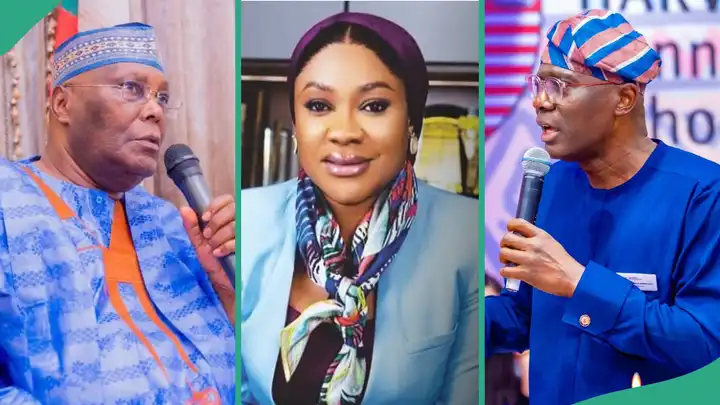
Investigation of wanted businesswoman Achimugu not linked with Atiku, Sanwo-Olu – EFCC
The Economic and Financial Crimes Commission has reacted to media reports linking its investigations of Ms. Aisha Achimugu with political undercurrents involving former Vice President Atiku Abubakar and Lagos State Governor, Babajide Sanwo-Olu
This is contained in a statement by the commission on Friday night.
The statement read, “We wish to state unequivocally that the investigations of Achimugu have no correlation of any kind with the two political actors. She is being investigated for alleged criminal conspiracy and money laundering and has since been declared Wanted by the Commission”.
The EFCC started investigating Achimugu in 2022. Although she approached the court to obtain an injunction restraining the Commission from arresting, investigating, inviting or detaining her for any alleged criminal act, the injunction was challenged and vacated on Wednesday, February 19, 2025 by a Federal High Court sitting in Abuja.
The court ruled that “…no court has the power to stop the investigative powers of the Police or EFCC or any agency established under our laws to investigate crimes when there is reasonable suspicion of commission of a crime or ample evidence of commission of an offence by a suspect.”
“The court further upheld the interim order of forfeiture of assets of Achimugu suspected to be proceeds of crime, dismissing her suit against it as lacking merit .
“The foregoing clearly establishes that the EFCC’s case against her has no immediate or remote nexus with any politician or any veiled or open reference to any political engagement or transaction.
“The EFCC is non-partisan and non-sectarian. We enjoin the public to continue to keep faith with the professionalism of the Commission without imputing any extraneous consideration to its works.”
News
Why governors’ forum is silent on Rivers emergency, by DG
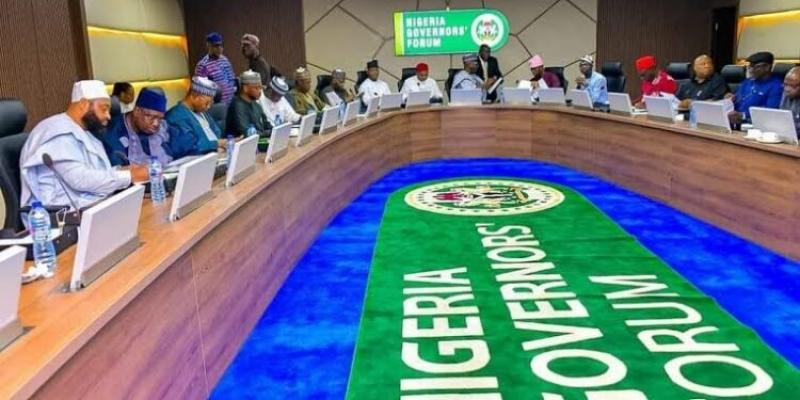
Why governors’ forum is silent on Rivers emergency, by DG
The Nigeria Governors’ Forum (NGF) yesterday attributed its neutral position on the recent declaration of a state of emergency in Rivers State to the need to steer clear of taking positions that may alienate members with varying political interests.
Taking positions on contentious partisan issues, the NGF said, would not augur well for it, especially in view of its past experience in fundamental division.
Notwithstanding, the declaration of the state of emergency by President Bola Tinubu yesterday generated more kudos and knocks from across the country.
Special Adviser to the President on Senate Matters, Senator Basheer Lado, said the action of the president was meant to ensure protection of lives and restoration of law and order in the state, while the President’s Special Adviser on Media and Public Communications, Sunday Dare, said his principal was required to “avert needless harm and destruction .”
National Publicity Secretary of the ruling All Progressives Congress (APC), Felix Morka, said Tinubu, by his action, cleared what had manifested as a constitutional crisis in Rivers state.
But former President Goodluck Jonathan saw it from a different perspective.
READ ALSO:
- Senate didn’t get 2\3 majority for Tinubu emergency rule in Rivers –Tambuwal
- FG destroys another 200 containers of expired drugs
- Rivers court bars woman from answering ex-husband’s name
He described “abuse of office and power by the three arms of government in the country“ as a dent on Nigeria’s image.
The NGF, in a statement by its Director General Abdulateef Shittu, said it is essentially “an umbrella body for sub-national governments to promote unified policy positions and collaborate with relevant stakeholders in pursuit of sustainable socio-economic growth and the well-being of the people.”
It added: “As a technical and policy hub comprising governors elected on different platforms, the body elects to steer clear of taking positions that may alienate members with varying political interests.
“In whatever language it is written, taking positions on contentious partisan issues would mean a poor sense of history — just a few years after the forum survived a fundamental division following political differences among its members.
“Regardless, the Forum is reputed for its bold positions on governance and general policy matters of profound consequences, such as wages, taxes, education and universal healthcare, among others.”
It asked for “the understanding of the public and the media, confident that appropriate platforms and crisis management mechanisms would take care of any such issues.”
Why governors’ forum is silent on Rivers emergency, by DG
-

 Uncategorized2 days ago
Uncategorized2 days agoBreaking: Moon sighted in Saudi, UAE, others, Eid-Fitr holds Sunday
-

 metro2 days ago
metro2 days agoRamadan ends in Nigeria, Sultan announces March 30 as Eid-el-Fitr
-
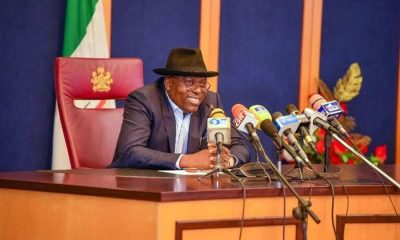
 metro2 days ago
metro2 days agoFubara reacts as Ex-HOS, Nwaeke accuses him of bombing oil pipelines, Rivers Assembly
-

 metro2 days ago
metro2 days agoEmbrace environmental sanitation during Eid-Fitr, LAGESC boss tells Lagosians
-

 Opinion2 days ago
Opinion2 days agoBarbaric mass burning of innocents in Edo, by Farooq Kperogi
-
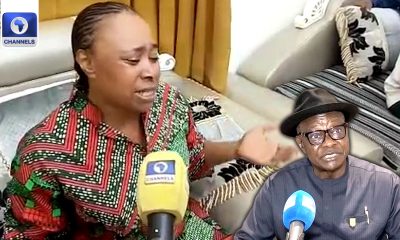
 metro2 days ago
metro2 days agoEx-Rivers HoS wife cries for help over husband’s safety
-
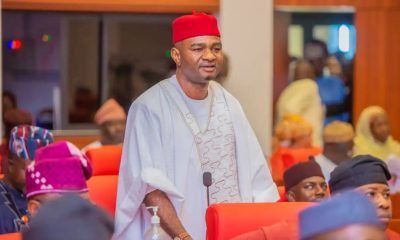
 metro2 days ago
metro2 days agoNatasha: Emmanuel Uduaghan threatens to sue Senator Nwaebonyi
-

 Auto2 days ago
Auto2 days agoLanre Shittu Motors to endow Automobile Department of Lagos Technical College

